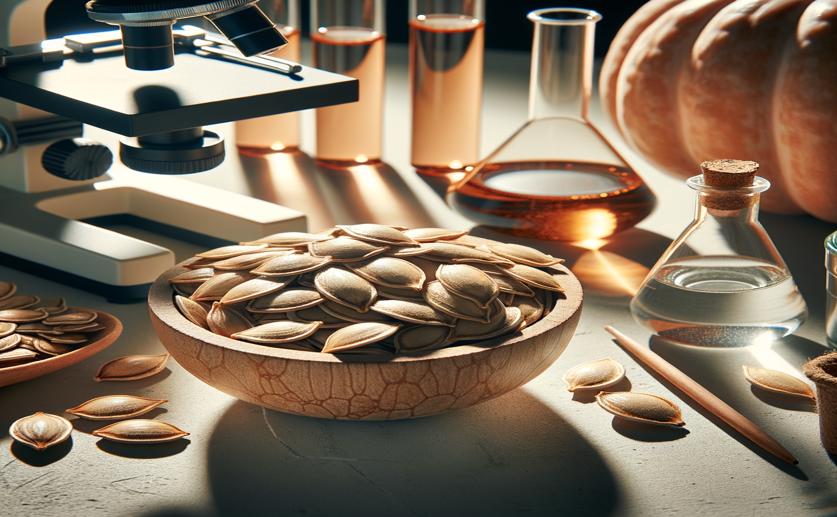
Analyzing the Chemical Compounds in Pumpkin Seeds
Greg Howard
8th May, 2024

Image Source: Natural Science News, 2024
Key Findings
- A study in Kiambu County, Kenya found pumpkin seeds contain health-boosting chemicals
- The seeds are rich in fatty acids, which are essential for human health
- They also contain a compound that could help treat parasitic worm infections
AgricultureBiochemPlant Science
References
Main Study
1) Phytochemical screening, FTIR and GCMS analysis of Cucurbita pepo seeds cultivated in Kiambu county, Kenya.
Published 15th May, 2024 (future Journal edition)
https://doi.org/10.1016/j.heliyon.2024.e30237
Related Studies
2) Antioxidative effects of pumpkin seed (Cucurbita pepo) protein isolate in CCl4-induced liver injury in low-protein fed rats.
Journal: Phytotherapy research : PTR, Issue: Vol 20, Issue 11, Nov 2006
3) Nutritional Value, Phytochemical Potential, and Therapeutic Benefits of Pumpkin (Cucurbita sp.).



 23rd April, 2024 | Jenn Hoskins
23rd April, 2024 | Jenn Hoskins